Arkitektgruppen Cubus AS
The goal of the project is to develop the connection from Mo i Rana to the neighboring fjord and railway, which are both part of the major transportation system serving the local iron and concrete industries. A specific solution was needed to solve the problem concerning the train tracks running through the center of the town, which created a barrier between the town center and the fjord, preventing any physical link from the town to the fjord.
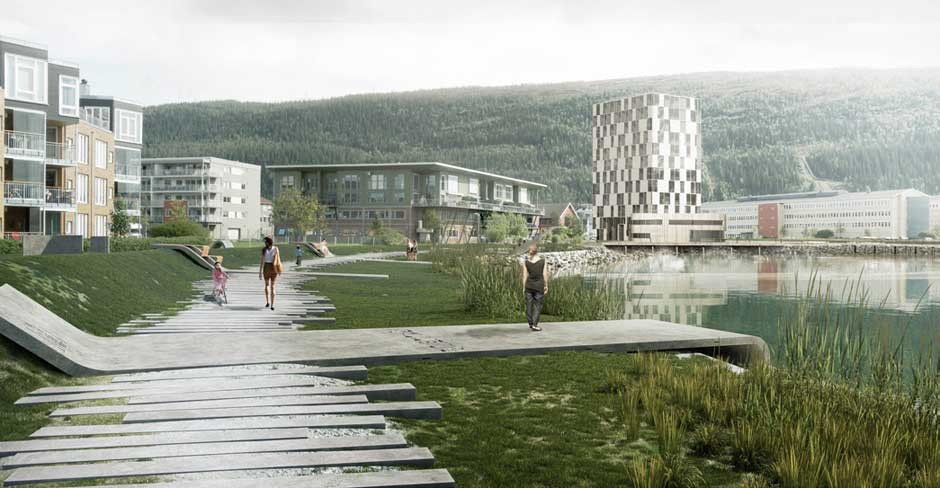
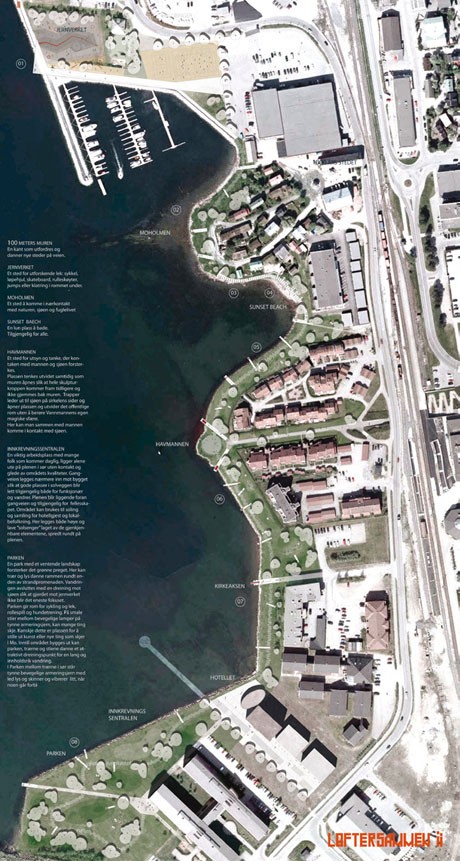
APPROACH
Cubus approached the project knowing that there are two contrasting qualities to the town – one side is open to the sea, while the other side is highly industrialized. As a result, an exciting range of urban and natural experiences come into play.
THE SEAFRONT
The firm proposed the image of a dual chambered heart as a fitting picture of the two halves of Mo i Rana. Each has a different purpose and is ‘designed’ accordingly, yet functions as a whole. Together, they provide the beating pulse that is the life of Mo i Rana.
IDENTITY
Mo i Rana’s economy has relied mainly on the steel and concrete industries. These industries have been key to the growth and identity of the region as a whole, and have had a dominating influence on the built seafront, since this is where the factories lie.
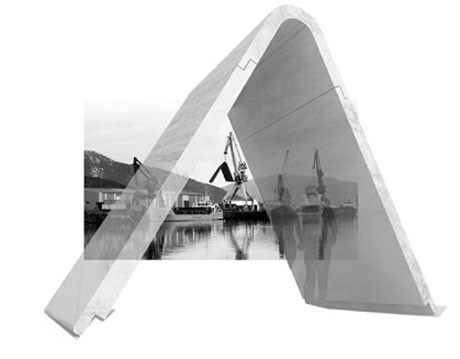
A NEW JOINT EFFORT
Utilizing the material, design and production knowledge of the local industry, the proposal involves the design of a series of large scale spatial modules that are used to transform the local terrain and microclimate at a given spot to provide places for shelter, sitting, reclining, access, connection between levels, and play and sport.
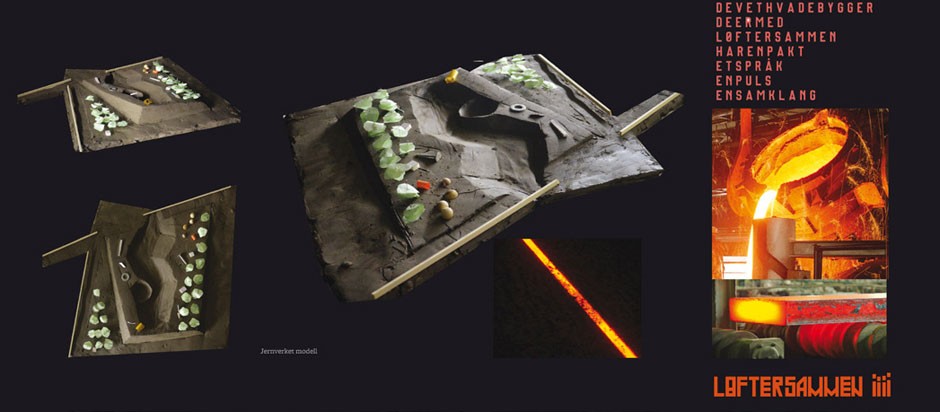
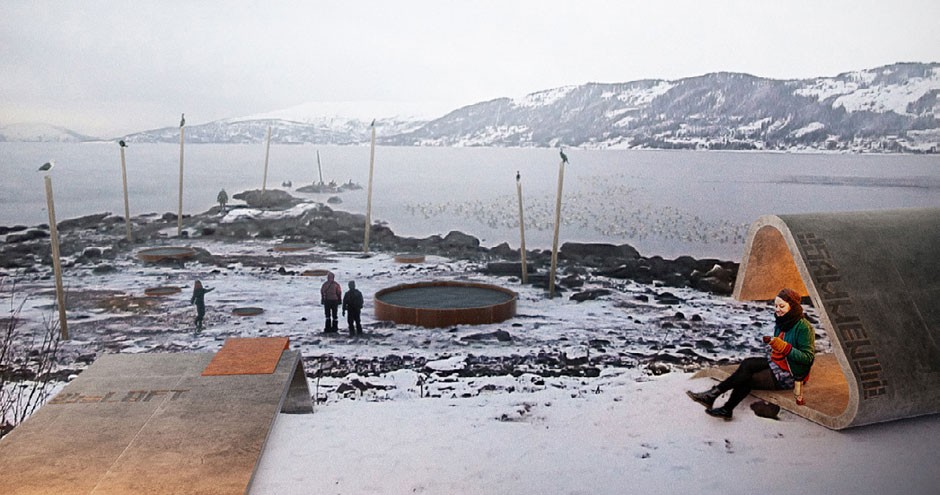
SEAFRONT PROMENADE
The seafront promenade consists of three main types of spatial modules. These are developed to cater to a wide range of terrain and programs, and can be positioned in a variety of ways either individually or as a group or sequence. This will create a varied rhythm of events all along the seafront; sometimes places to stay, sometimes places to play, a flexible and playful structure with soft zoning for a range of characteristics and activities.

THE 100 METER WALL
The old wall that runs along the seafront will be retained for its protective qualities, but is included in the series of events that take place along the path. It can provide support for a new installation, a steel plate hung over its edge bent to the shape of a bench overlooking the sea, bent again to create an enclosed space — a place to envelope a moment in time. An old wall is rejuvenated by a new context. Perhaps new events and new places happen along the wall gradually as time goes by, a surprise to be along an old path.
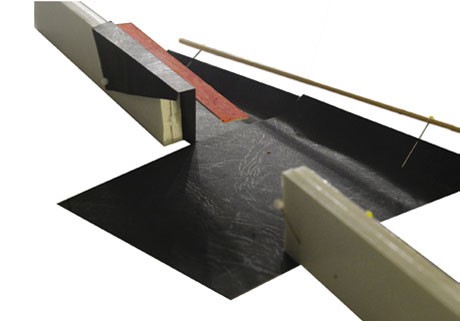
MOHOLMEN
A row of poles lead into the sea and invites children and grown ups to explore shallow tidal waters. Stepping stones of steel give easy access for crab hunting, hand netting, wading and studying the rich tidal life below. These stones are perforated and partly submerged discs that collect sea urchins, mussels and seaweed. As the waves wash over them they play tunes accompanied by the sounds of the Steelworks. Pulsating lights in rhythm with the sea could add to the atmosphere.
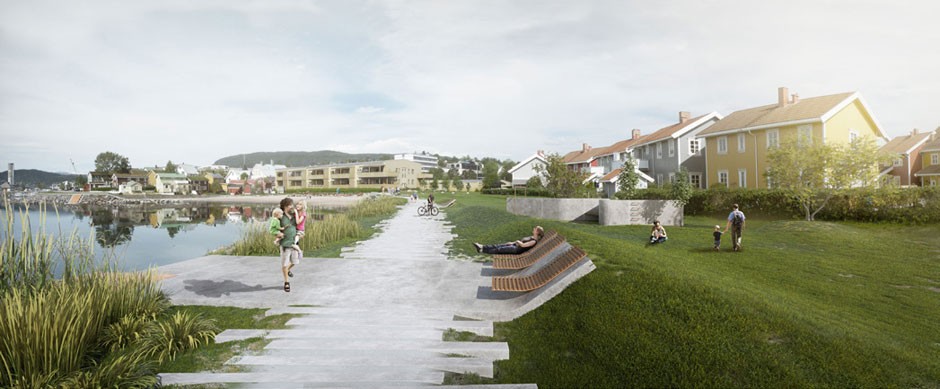

THE TRAIL TO SUNSET BEACH
The sea promenade is an open space with an alternating rhythm of undulating soft edge path and spatial interventions created by the new modules. The walk is bordered by a natural habitat of wildflowers and reeds on the seaside, and inviting, sheltered places to sit and play in the urban side. A cantilevered walkway that gives easy access to the beach is proposed for the southern side of the beach. The northernmost part is attached to the old wall and leads up to the Moholmen area. The concrete modules of the path are concave in flight where they span the terrain and concave where the path hugs the ground so as to protect the soil from erosion. The modules also provide seating. The new walkway provides improved access to the beach, and if it is washed away by the tidal waves there is an alternate route along the path behind the existing houses.
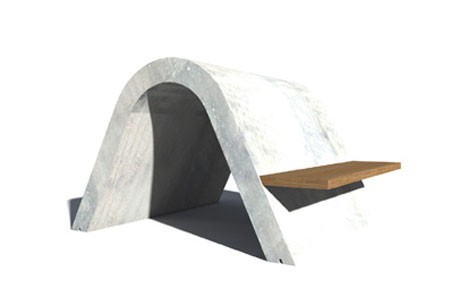
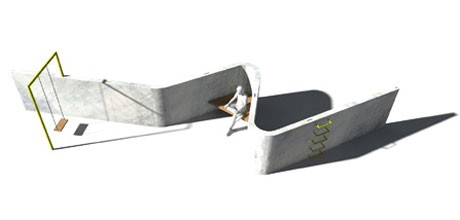
THE HAVMANNEN SCULPTURE –
THE MAN OF THE SEA
The Havmannen sculpture is situated in the sea. This is a place for contemplation, where the sculpture and the sea should remain focus. The little viewing place is extended somewhat, and an opening is cut into the wall so the sculpture remains in full view. New steps allow for public access to the sea.
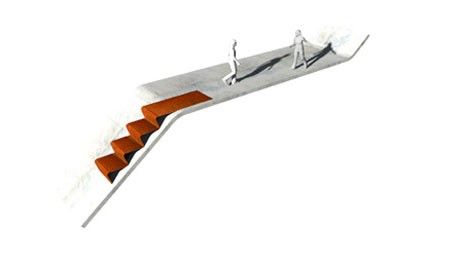
INNKREVNINGSSENTRALEN –
THE NATIONAL DEBT OFFICE
Despite the official nature of this office, these offices are isolated from the surrounding pedestrian area and are not connected to the spectacular landscape that surrounds it. A new pedestrian connection will be established with places for rest and socializing along the sunny façade for employees and walkers. As a result, the lawns are accessible for everyone for activities such as sunbathing, socializing and playing. Sun beds based on the new spatial modules furnish the area.
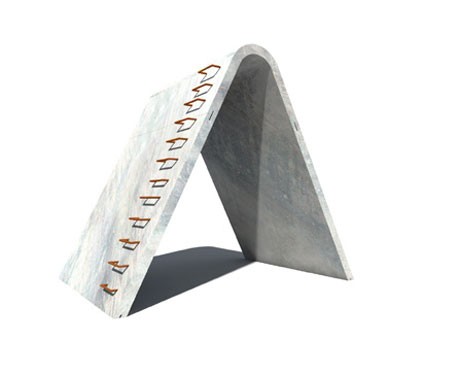
THE PARK
At the end of the seafront promenade, an open park would be reserved for future needs. It also supplements the new development projects with a more flexible and general green space with lawns, trees and lighting for walking, cycling, playing, agility parks and so on. The park is oriented towards the sea as it is at the end of the walk. Narrow paths and movable lighting enable this park to be the venue for a wide range of activities in addition to the activities already mentioned; for instance, art exhibitions or other important public events. Among the trees, slender steel LED columns sway and light when yet another seafront wanderer ends a long and copious walk.
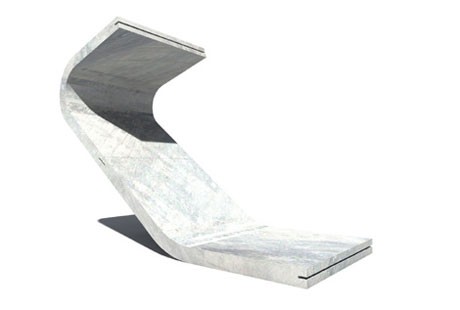
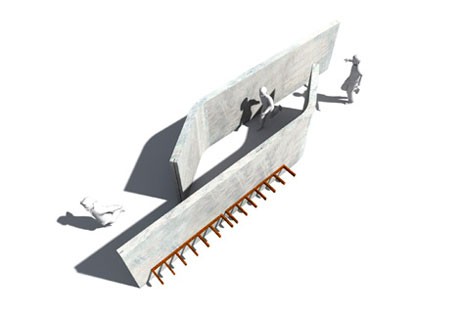
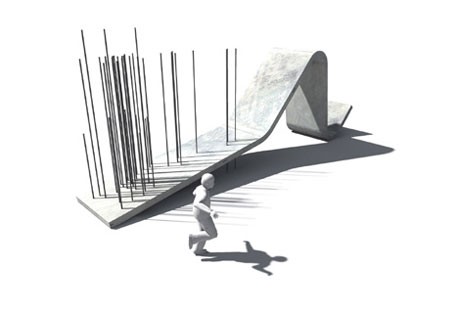
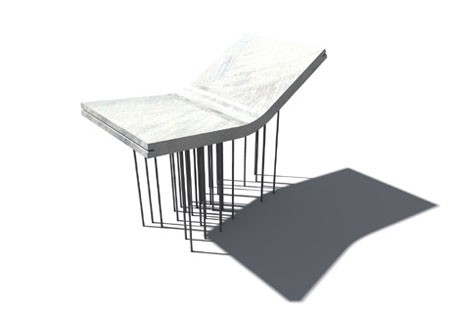
Arkitektgruppen Cubus AS
Cubus was established in 1972 and is based on a flat organizational structure, meaning creation of an environment based on commitment and the desire to create new sustainable architecture, regardless of experience and ownership.